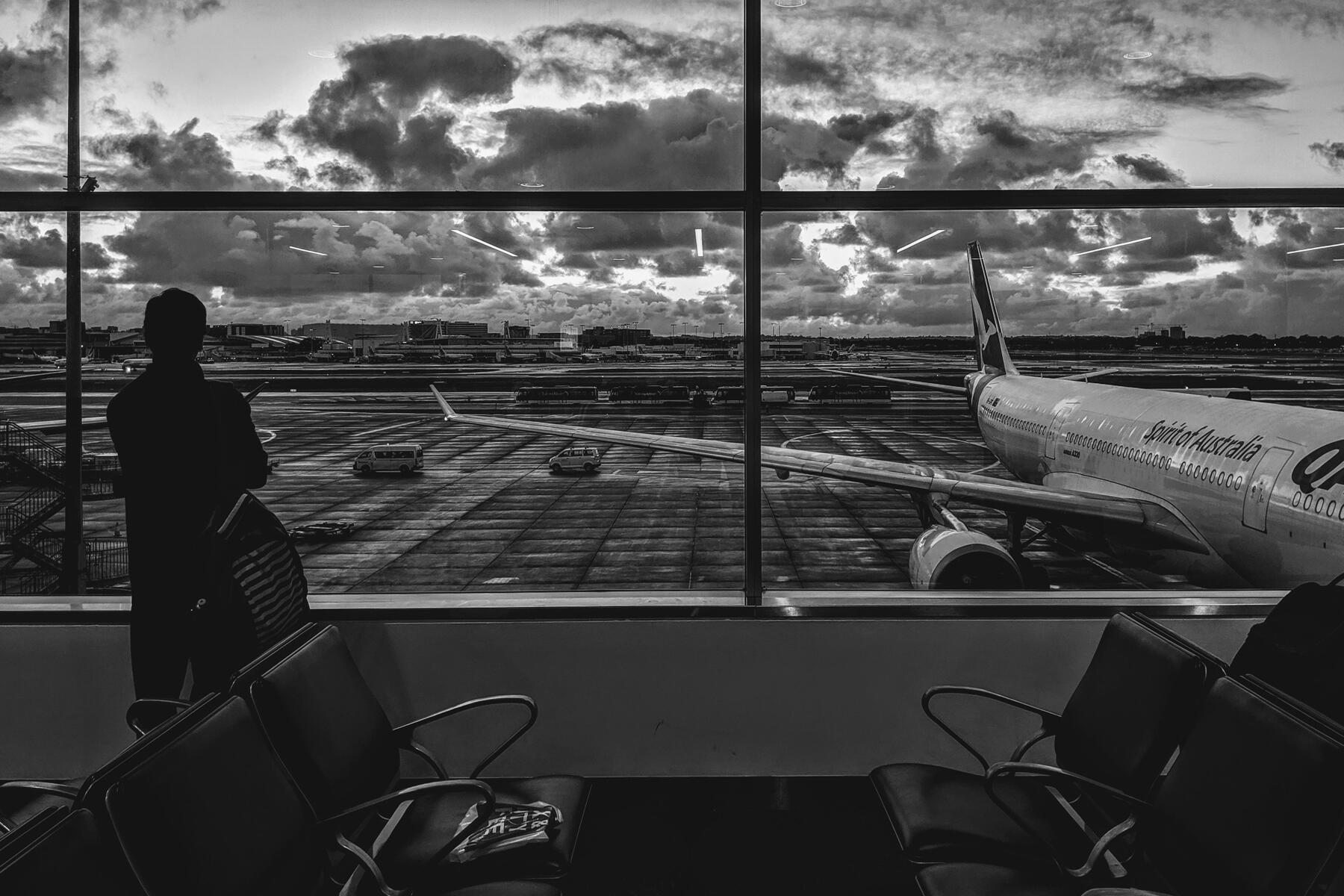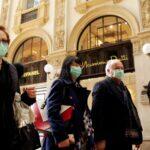Here’s how COVID-19 has affected people all over the world.
In the last few months, as the novel coronavirus known as COVID-19 has spread to dozens of countries across the globe, mass media has whipped the world into a frenzy of Sinophobia and panic buying. Meanwhile, commonsense precautions—such as frequent and thorough hand washing, as well as keeping your grubby fingers away from your face—have been shared across social media and beyond. But how are countries at large dealing with this epidemic?
Asia
China
Ground zero of the coronavirus epidemic, China has reported over 80,000 cases of COVID-19 since the disease emerged in Wuhan. While criticized for initially failing to report incidences of the disease, the draconian quarantine measures—Wuhan and the wider Hubei province have been on strict lockdown—appear to have slowed the virus’ spread. Meanwhile, schools and universities have shifted classes online (although students have spammed homework-assigning apps with one-star reviews) and a strict 14-day self-quarantine has been introduced for people returning to Beijing.
Many Chinese museums and tourist sites, including the Terracotta Warriors site, remain closed. However, China’s National Heritage Administration is encouraging museums to step up sharing information online. Asia’s Disney parks are temporarily closed and Shanghai Disney and Hong Kong Disney have not yet posted re-opening dates.
Recommended Fodor’s Video
Japan
In Japan, most major attractions (including Tokyo Disney) are closed until mid-March. Universal Studios Japan, like Tokyo Disney, is set to reopen March 16. The Tokyo Skytree plans to re-open March 15. Museums are closed. Many sporting events, like baseball games and a spring sumo tournament, are going ahead, but without spectators. Japan has canceled several cherry blossom festivals, including the one in Tokyo.
So far, the 2020 Summer Olympics in Tokyo is still moving forward as planned, though there have been discussions of limiting or banning spectators or even postponing the games until next year.
South Korea
South Korea was one of the first countries outside of China to see rapidly rising rates in confirmed COVID-19 cases, perhaps thanks to a swift and methodical approach to testing residents for the virus. Drive-thru testing points have been dealing with close to 10,000 people per day, while widely available testing kits have been turning around results in a day. Plus, text message alerts with COVID-19 updates, including the recent movements of people newly diagnosed with COVID-19, are sent out daily, and a hotline has been opened to assuage residents’ fears about the virus.
In South Korea, guided tours of many attractions are on hold, but the attractions themselves remain open (for instance, Gyeongbokgung Palace). Museums, however, are closed until further notice and several sporting events are canceled.
SARS and COVID-19 are both types of coronavirus, although according to John Hopkins Medicine, while COVID-19 seems to spread faster, it tends to cause milder symptoms.
Thailand
Thailand also has some cancelations and closings. The Legend Siam theme park, for example, is closed, but attractions like the Grand Palace in Bangkok remain open (though some special events and performances at the Palace have been canceled or postponed). Several events have been canceled or postponed, including the March 8 Koh Phangan full moon party and the March 20-22 MotoGP race. Thailand’s tourism authority has created coronavirus recommendations and best practices for the tourism industry and travelers. Johns Hopkins University’s Global Health Security Index ranks Thailand as the Asian country most prepared for an epidemic.
The people most at risk of COVID-19 are those with underlying health issues and the elderly. Taking measures to protect yourself—regardless of how at-risk you feel—helps to protect them.
Europe
France
Kisses—yes, even air kisses—and handshakes are to be avoided in France, a country where multiple MPs have already tested positive for COVID-19. Meanwhile, travelers arriving from China, Hong Kong, Macau, Singapore, South Korea, Iran, and Italy are being tested on arrival at French airports.
France saw the temporary closing of the Louvre on March 1, but the museum opened again on March 4–another shutdown remains possible, however. Other sites like the Eiffel Tower remain open, although they have asked that visitors pay with credit cards only—no cash. Gatherings of more than 5,000 people in enclosed spaces are banned, so events like the March 20-23 Livre Paris Book Fair are canceled.
Italy
The first European country to see drastic increases in confirmed COVID-19 cases, Italy has been on nationwide lockdown since March 10, 2020. Most public gatherings have been banned, movement is severely limited, and fines will be imposed on anyone breaking the quarantine rules. All schools, universities, museums, attractions, bars, and restaurants are closed. All shops have also been ordered shut with the exception of those selling “basic necessities,” which includes pharmacies and supermarkets.
Major sports events are canceled, postponed, or played without spectators until April 3. Other major events in Italy have been postponed–April’s Vinitaly wine fair will now take place in June and the start of Venice’s architecture biennale has moved from May to August.
Many countries—including the United Kingdom and Malta—have warned against all but the most essential travel to Italy.
Many people have mild symptoms—or no symptoms at all. If you feel unwell, most advice indicates that you should inform your doctor and stay at home until you recover.
Spain
Alongside Italy and France, Spain has seen a spike in COVID-19 cases in recent days and is taking precautionary measures against the virus. All schools and universities in the Madrid region and some parts of the Basque Country will close until late March, while visits to nursing homes are being restricted until further notice in the former.
COVID-19 is spread by infected respiratory droplets. Contrary to popular belief, you should only wear a mask if you’re unwell.
United Kingdom
The United Kingdom has tested more than 25,000 people for COVID-19 since the outbreak began and drive-thru stations are starting to appear in Wales and Scotland. In church, non-physical ways of “sharing the peace” are being promoted, while those who believe they have COVID-19 symptoms are being urged to call National Health Service hotlines and self-isolate before being tested. Anyone returning from Italy must self-isolate regardless of symptoms.
As of March 11, no children under 9 years old have died from COVID-19 anywhere in the world.
Middle East
Iran
Along with Italy, Korea, and China, Iran has been one of the countries hit hardest by COVID-19, with several members of Iranian parliament taking ill or passing of COVID-19. Many places of worship, schools, and universities have been closed for the foreseeable future, while most foreign flights have been canceled. Many countries are prohibiting entry to people who have been in Iran within the previous two weeks or are requiring self-isolation or quarantine.
The COVID-19 virus is currently thought to have an incubation period of up to 14 days, with most people showing symptoms by day five.
Israel
On February 26, 2020, Israel advised its citizens to reconsider travel abroad, the first country to do so. As of March 5, Israel is banning visitors from several European countries, including Italy, France, Germany, Spain, and Switzerland. Mandatory 14-day quarantines are in effect for travelers from other countries. The Israeli government advised that international conferences within the country be postponed or canceled. Many tourist sites are closed. As of March 5, Bethlehem is closed and no one may enter or leave. Haaretz reports that officials from Israel and the Palestinian Authority are working jointly to prevent the spread of COVID-19.
Africa
Cases of COVID-19 have slowly started appearing in Africa, giving the World Health Organization and African governments time to prepare.
As of March 11, Egypt has 60 cases and though there are fewer tourists, the Pyramids and temples along the Nile remain open. Morocco has only five cases, while South Africa has 13. Popular safari destinations like Kenya, Tanzania, Zambia, Namibia, and Botswana have no cases.
Though most tourist sites in Africa remain open, travelers who want to see the mountain gorillas in Uganda and Rwanda should be prepared for potential cancelations of their treks. Trekkers who have any symptoms of illness have always been asked not to join a trek to see these endangered creatures. Rangers have the authority to cancel participation for anyone they deem sick and posing a risk to the gorillas. Though tourism dollars are essential for funding conservation, all-out cancellations during the COVID epidemic are possible given the need to protect the world’s remaining 1,000 mountain gorillas.
North America
Canada
Canada’s Chief Public Health Officer has asked Canadian families, businesses, schools, and hospitals to plan for a possible surge in COVID-19 cases. Canada has about 100 cases as of March 11, 2020. Tourist sites remain open. However, Vancouver’s April 20-24 TED conference will either be postponed or held virtually. The Public Health Agency of Canada regularly updates its coronavirus information.
The Caribbean
The region has not yet seen many COVID-19 cases and therefore little has been closed or canceled. Cruise Critic updates its list of port closures, which includes several instances of Caribbean ports turning away specific ships or not allowing passengers of some nationalities to disembark. Many cruise lines are adjusting their itineraries as needed.
Mexico
Mexico received its first confirmed case of COVID-19 in late February and within hours, hand gel and face masks—which are, remember, mostly ineffective unless you’re actually unwell—had sold out in many pharmacies and supermarkets across the country. Since then, the spread appears to have been contained but the inexorable Mexican desire to face crises with memes has continued unabated and so-called coronavirus cumbias are doing the rounds on Youtube.
Tourist attractions in Mexico, such as the Xcaret eco-archeological parks near Cancun, remain open.
United States of America
On March 11, President Trump announced a ban on all travel from Europe, with the exception of those from the U.K. The ban begins on Friday, March 13, and will last for at least 30 days. However, the Department of Homeland Security later clarified that all U.S. legal permanent residents and citizens are exempt, but any who have been within the European Schengen area may be subject to a 14-day quarantine.
The U.S. has largely been criticized for a slow response to the growing COVID-19 crisis, with early testing kits proving faulty and President Trump—a known germaphobe—claiming to be “not concerned at all”. (Trump himself may have been indirectly exposed to COVID-19, although he’s reportedly refusing to take a COVID-19 test and is most concerned with keeping confirmed U.S. cases of coronavirus low.)
At the time of writing, the CDC is no longer providing official figures of COVID-19 tests conducted, although Seattle has recently introduced South Korea-style drive-thru testing stations, and a containment area has been set up in Westchester County, New York. However, community spread appears to be on the rise and there have already been reports of U.S. residents breaking quarantine, including a case in Missouri.
States of emergency have been called in 13 states including California, Florida, New York, Oregon, and Washington. The state of emergency status does not mean travel to or within these states should be canceled; it is meant to allow officials to better share information, procure equipment and services, and protect consumers from price gouging.
With COVID-19 cases in several states across the U.S., some schools have closed and some conferences have been canceled. Several major tech events are off including May’s Google I/O 2020 and the mid-March Game Developers Conference, both in California. Some spring meetings, like those of the World Bank and International Monetary Fund in Washington, are changing from in-person to virtual meetings.
Leaders of the meetings and events industry, including the CEOs of the Events Industry Council and Meeting Professionals International, issued a statement on March 5, 2020, encouraging decisions regarding event cancellation to be made based on facts rather than fear. The message underscored that public health authorities are not recommending any travel or business restrictions in the U.S. and that protections against COVID-19 are similar to seasonal flu prevention.
The status of most consumer events and attractions in the U.S. has been in flux because of COVID-19. The South by Southwest (SXSW) film and music festival in Austin has been canceled. Seattle’s Emerald City Comic Con has been postponed to summer 2020, while San Diego’s July Comic-Con is going ahead. Coachella and Stagecoach music festivals have been postponed to October. Major attractions like Orlando’s theme parks are open and Orlando’s airport, one of the busiest in the country, has enhanced its protocols to protect against COVID-19. New York has a few COVID-19 cases; attractions like the Statue of Liberty remain open. As reported by CNN, New York Governor Andrew Cuomo said, “We have an epidemic caused by coronavirus, but we have a pandemic that is caused by fear.” Since Gov. Cuomo said this, the WHO has declared coronavirus to be a pandemic. On March 11, for the first time in 258 years, New York’s annual St. Patrick’s Day Parade was canceled.
Worldwide
Asian-owned restaurants and shops around the world have seen their business drop dramatically because of coronavirus-related xenophobia. Some customers incorrectly think that they have a greater chance of catching COVID-19 at Asian businesses simply because the disease originated in China. In Houston, food writers like Mai Pham are trying to promote Asian restaurants via a social media campaign to help ensure the city’s diverse eateries don’t go out of business.
Wherever you live and travel, patronizing the small businesses that enrich your life will help make sure they remain open past the COVID crisis. Keep washing your hands and keep living your life.







